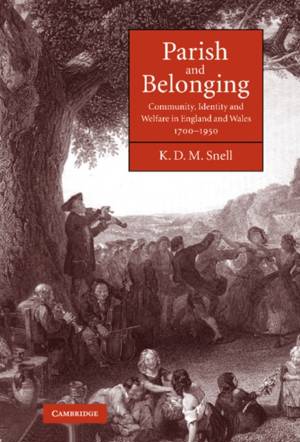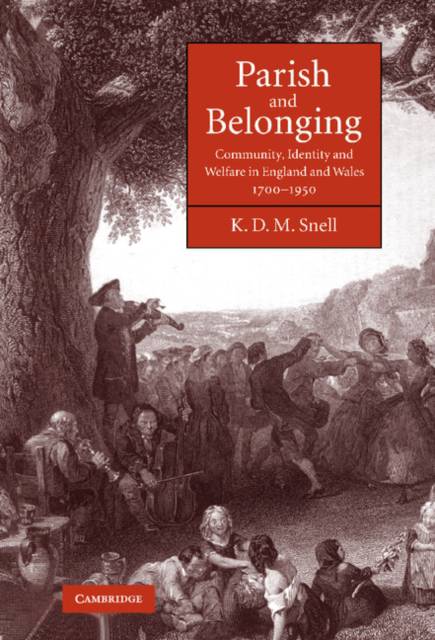
- Afhalen na 1 uur in een winkel met voorraad
- Gratis thuislevering in België vanaf € 30
- Ruim aanbod met 7 miljoen producten
- Afhalen na 1 uur in een winkel met voorraad
- Gratis thuislevering in België vanaf € 30
- Ruim aanbod met 7 miljoen producten
Zoeken
Parish and Belonging
Community, Identity and Welfare in England and Wales, 1700–1950
K D M Snell
Hardcover | Engels
€ 249,45
+ 498 punten
Uitvoering
Omschrijving
What role did the parish play in people's lives in England and Wales between 1700 and the mid-twentieth century? By comparison with globalisation and its dislocating effects, the book stresses how important parochial belonging once was. Professor Snell discusses themes such as settlement law and practice, marriage patterns, cultures of local xenophobia, the continuance of out-door relief in people's own parishes under the new poor law, the many new parishes of the period and their effects upon people's local attachments. The book highlights the continuing vitality of the parish as a unit in people's lives, and the administration associated with it. It employs a variety of historical methods, and makes important contributions to the history of welfare, community identity and belonging. It is highly relevant to the modern themes of globalisation, de-localisation, and the decline of community, helping to set such changes and their consequences into local historical perspective.
Specificaties
Betrokkenen
- Auteur(s):
- Uitgeverij:
Inhoud
- Aantal bladzijden:
- 556
- Taal:
- Engels
Eigenschappen
- Productcode (EAN):
- 9780521862929
- Verschijningsdatum:
- 16/11/2006
- Uitvoering:
- Hardcover
- Formaat:
- Ongenaaid / garenloos gebonden
- Afmetingen:
- 162 mm x 229 mm
- Gewicht:
- 1002 g

Alleen bij Standaard Boekhandel
+ 498 punten op je klantenkaart van Standaard Boekhandel
Beoordelingen
We publiceren alleen reviews die voldoen aan de voorwaarden voor reviews. Bekijk onze voorwaarden voor reviews.







